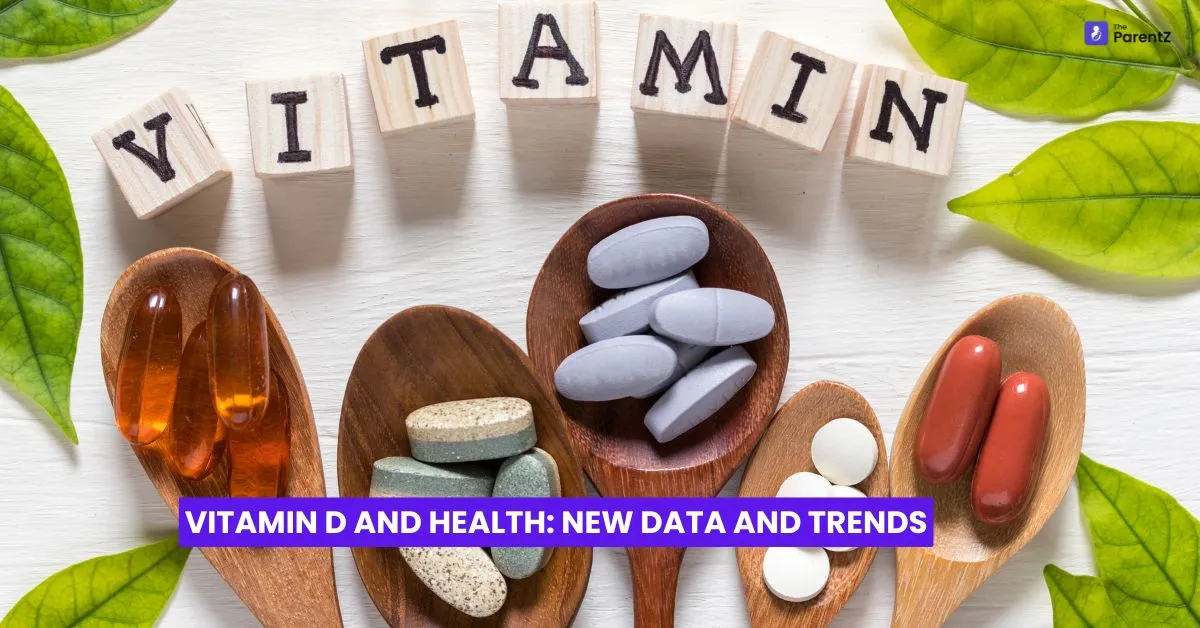Introduction
Vitamin D has long been known as the “sunshine vitamin,” primarily celebrated for its role in calcium absorption and bone health. But in 2025, a groundbreaking wave of clinical studies has shed new light on its far broader impact. According to a recent set of findings from the VITAL trial, one of the world’s most ambitious nutrition studies, vitamin D supplementation may significantly slow biological aging and reduce the risk of major chronic illnesses—including heart disease, diabetes, and cancer.
This new research moves beyond traditional perceptions of vitamin D, positioning it as a potential key player in preventive medicine and healthy aging.
The VITAL Trial: A Landmark Study
The Vitamin D and Omega-3 Trial (VITAL), conducted by Harvard Medical School and Mass General Brigham, involved over 25,000 participants over a span of four years. While the original goal was to study the effects of vitamin D and omega-3 fatty acids on heart disease and cancer, researchers expanded their scope to explore biological aging markers—particularly telomere length.
What Are Telomeres and Why Do They Matter?
Telomeres are the protective caps at the ends of our chromosomes. Think of them like the plastic tips on shoelaces—they keep our DNA from fraying. As we age, these telomeres naturally shorten, and their reduction is associated with increased cellular aging, inflammation, and risk of age-related diseases.
The 2025 study found that daily supplementation of 2,000 IU of vitamin D3 slowed telomere shortening by approximately 18% compared to the placebo group. This effect translates to a biological age reduction of nearly 2.5–3 years.
Key Findings from the 2025 Research
1. Slowing Cellular Aging
- Participants taking vitamin D daily experienced significantly slower biological aging.
- The preservation of telomere length was most notable in individuals who started with low baseline vitamin D levels.
2. Reduction in Chronic Disease Risk
- Longer telomeres are linked with lower risks of type 2 diabetes, cardiovascular conditions, and even neurodegenerative disorders like Alzheimer’s.
- Participants also reported improved mood stability, reduced fatigue, and better metabolic function.
3. Immune System Boost
- Vitamin D appears to help modulate the immune response—crucial for preventing autoimmune conditions and maintaining resilience against infections.
- It enhances the function of T-cells and macrophages, two vital components of the immune system.
Expert Opinions
Dr. JoAnn Manson, the principal investigator of the VITAL study, stated:
“What we’re seeing is evidence that vitamin D supplementation isn’t just about preventing deficiency—it could be a proactive tool in slowing biological aging and supporting long-term health.”
Dr. Vineet Chopra, a public health expert, added:
“This kind of research opens the door for targeted supplementation strategies—not as a cure-all, but as a meaningful piece in the health and aging puzzle.”
Recommended Dosage and Safety Guidelines
- Recommended Dose: The study used a daily intake of 2,000 IU of vitamin D3, which is above the current RDA (600–800 IU/day) but still within the safe range for most adults.
- Natural Sources: Sunlight exposure (15–30 minutes daily), fatty fish (like salmon and sardines), egg yolks, fortified milk, and orange juice.
- Supplementation Advice: Always consult a healthcare provider before starting high-dose supplements—especially if you have conditions like kidney disease or hypercalcemia.
Toxicity Risk
- Too much vitamin D can be harmful.
- Symptoms of overdose include nausea, vomiting, confusion, and kidney complications.
- Upper safe limit: 4,000 IU/day for adults, according to the Institute of Medicine.
Who Should Consider Supplementation?
- Individuals with low sunlight exposure
- Older adults (above 50)
- People with darker skin tones (reduced natural synthesis)
- Those with autoimmune or chronic inflammatory conditions
- Pregnant and breastfeeding women, under medical supervision
Implications for Public Health
The findings suggest that preventive supplementation with vitamin D could become part of public health policy—especially in countries like India, where vitamin D deficiency affects nearly 70% of the population. Schools, corporate wellness programs, and community health clinics may begin offering vitamin D screening and fortification campaigns.
Conclusion
The 2025 research on vitamin D is not just a health headline—it’s a potential shift in how we approach aging and chronic disease prevention. By preserving telomere length and enhancing immune and metabolic health, vitamin D supplementation may emerge as a simple yet powerful tool in our pursuit of healthier, longer lives.
But like any scientific discovery, it demands balance. The takeaway isn’t to self-medicate, but to understand, consult, and personalize—because in the world of health, one size never fits all.





Be the first one to comment on this story.